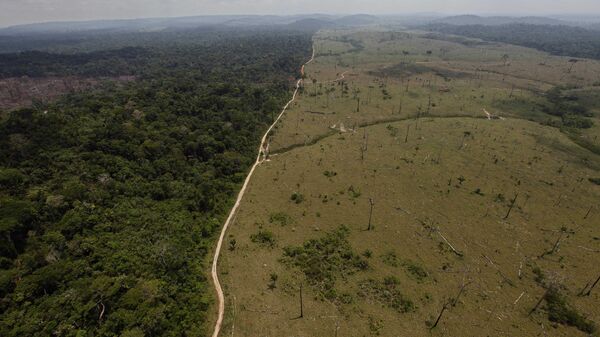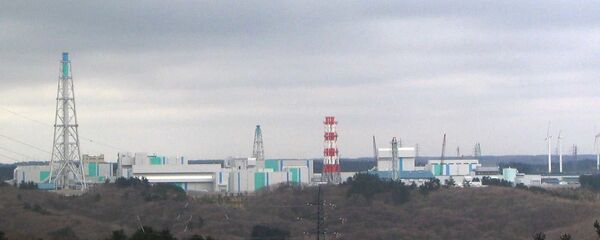Humanity has less than a 10 percent chance of avoiding a collapse of civilisation, claims new research, published in the journal Scientific Reports. According to the study, the rampant consumption of natural resources is driving the human race toward a catastrophe. The authors of the report created a model, which estimated that with the current rate of deforestation there will be no forests in approximately 100-200 years.
"It is highly unlikely to imagine the survival of many species, including ours, on Earth without [forests]. The progressive degradation of the environment due to deforestation would heavily affect human society and consequently the human collapse would start much earlier", wrote Dr Aquino and Professor Bologna.
There were 60 million square kilometres of forest on Earth before the development of human civilisation, the new paper says that there are now only 40 million square kilometres of forest. Current population growth coupled with the rate humanity consumes the resources we have means that only two to four decades are left before the "irreversible collapse of our civilisation", the research study points, out adding there is less than a 10 percent chance that civilisation itself survives.
"In conclusion our model shows that a catastrophic collapse in human population, due to resource consumption, is the most likely scenario of the dynamical evolution based on current parameters…. we conclude from a statistical point of view that the probability that our civilisation survives itself is less than 10 percent in the most optimistic scenario. Calculations show that, maintaining the actual rate of population growth and resource consumption, in particular forest consumption, we have a few decades left before an irreversible collapse of our civilisation", wrote the authors of the study.
Is it the End?
The model created by Dr Aquino and Professor Bologna took into account current conditions and extrapolated them in the future. The situation with deforestation seems to have started improving in the past few years, though the numbers don’t mean that we've turned off the road leading to ecological catastrophe.
According to the report published by the United Nations Food & Agricultural Organization (FAO) with UN Environment Programme, the rate of deforestation has been declining for the past several decades from 7.8 million hectares per year to 4.7. In addition, new forests have been created naturally and artificially.
But in global terms, the area of forests has been decreasing. The UN report says 178 million hectares (an area about the size of Libya) of forests were cut between 1990 and 2020.
Nothing in Excess
The authors of the new study also looked at whether our technological growth will enable us to prevent an environmental collapse or rebuild civilisation in an "extra-terrestrial space" (on another planet). The answer is disappointing. Chances are slim. Moreover, the study suggests that intelligent civilisations tend to end up destroyed due to overconsumption long before they develop capabilities to become advanced and enduring.
"Consumption of the planetary resources may be not perceived as strongly as a mortal danger for the human civilisation” because it is "driven by the economy", read the study. According to its authors, a new model of society should be created "that in some way privileges the interest of the ecosystem above the individual interest of its components, but eventually in accordance with the overall communal interest".




